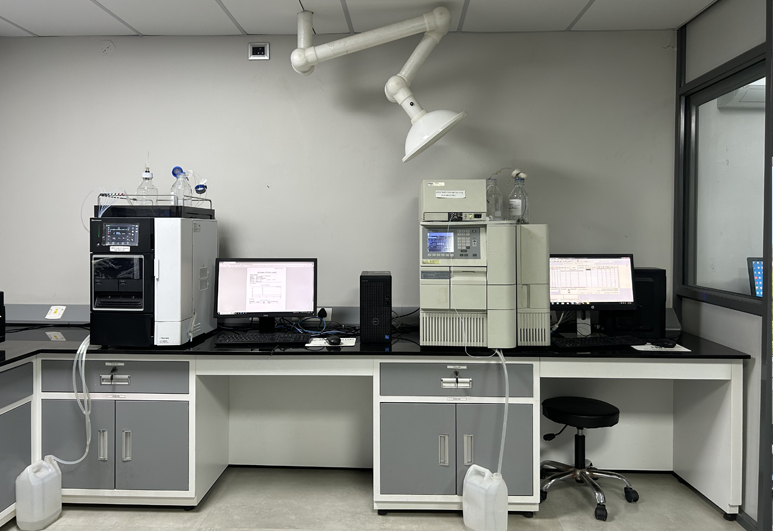Extractable & Leachable Studies

Extractables Studies
Extractables are compounds that can be forcibly extracted from a material using aggressive solvents, elevated temperatures, or extended exposure times under exaggerated conditions.
- Identify the worst-case scenario contaminants.
- Understand the chemical composition of packaging or contact materials.
- Guide the design of Leachables studies.
Why choose?
Latest equipment
Testing equipment have significantly enhanced efficiency.
Safe diagnoses
Both accurate results and lab personnel/environmental safety.

Test Conditions
- Use of solvents of varying polarity (e.g., water, ethanol, hexane)
- Elevated temperature and extended extraction duration
- Performed using techniques like Soxhlet extraction, refluxing, or static extraction
Leachable Studies
Leachable are compounds that migrate into the drug product under real-life conditions (e.g., during storage or use). These are a subset of extractables but occur naturally without forced conditions.
- Evaluate actual patient exposure risk.
- Ensure product safety and regulatory compliance.
- Support container-closure system suitability and shelf-life claims.
Study Design
- Conducted using real-time or accelerated storage conditions
- Analysed at multiple time points throughout the product’s shelf life
- Typically follow ICH stability protocols
Analytical Techniques Used
- Gas Chromatography-Mass Spectrometry (GC-MS) – volatile organics
- Liquid Chromatography-Mass Spectrometry (LC-MS) – semi-volatiles and non-volatiles
- Inductively Coupled Plasma Mass Spectrometry (ICP-MS) – elemental impurities
- Fourier-Transform Infrared Spectroscopy (FTIR)
- NMR, TOF-MS, UV-Vis Spectroscopy for structure elucidation
Applicable Materials for E&L Studies
- Plastic and elastomeric containers
- Rubber stoppers, vial caps
- IV bags, syringes, inhalers
- Single-use systems (SUS)
- Biopharmaceutical manufacturing components (tubing, filters)
Regulatory Guidelines
- USP <1663> – Assessment of Extractables
- USP <1664> – Assessment of Leachables
- ICH Q3D – Elemental Impurities
- FDA, EMA, PQRI guidelines
Outcomes of E&L Studies
- Comprehensive risk assessment
- Qualification of packaging and delivery systems
- Identification and quantification of any potentially toxic compounds
- Support for regulatory filings (NDA, ANDA, BLA, DMF)



